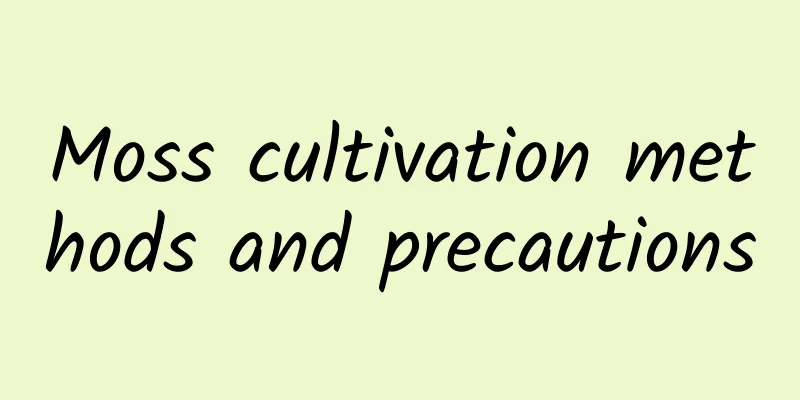How to grow ginger? Steps and methods of growing ginger at home. Management techniques

|
Ginger is an indispensable condiment in daily life. We eat radishes in winter and ginger in summer. We don’t need a doctor’s prescription. Eating more ginger also has a therapeutic effect. We usually buy raw ginger in supermarkets, but we can also grow ginger ourselves. Ginger planting timeThe timing of planting ginger depends on the temperature. In Hunan, Wuhan and other places, ginger is generally planted in April and May each year , while in the river valley areas of northwest China, sowing begins in March. The best growth temperature for ginger is 25-30 degrees , and the minimum temperature should not be lower than 15 degrees , so you can decide the planting time according to the temperature changes in your area. Ginger planting steps and management methods1. Choice of Ginger Planting Choose varieties with large pieces, bright colors, and tender flesh. Try to select ginger pieces that are free of diseases and insect pests as ginger seeds. 2. Germination and sowing To make the ginger seeds grow faster, you must ensure that they can germinate quickly. So after the ginger seeds are selected, put them in a room with appropriate temperature for germination. To make the ginger seeds grow faster, you must ensure that they can germinate quickly. So after the ginger seeds are selected, put them in a room with appropriate temperature for germination. 3. Planting Arrange the seed sprouts in the prepared grooves, making sure that the ginger sprouts are facing upwards, and then press them into the mud so that the ginger sprouts are level with the groove surface. After planting, cover them with fertile fine soil and cover them with a film to ensure rapid germination. 4. Seedling management When the ginger plant grows 2-3 leaves, it needs more nutrients and water to grow. Generally, apply an appropriate amount of diluted manure fertilizer and water it with an appropriate amount of water. You can also apply seedling fertilizer once. The fertility should be mainly compound fertilizer high in nitrogen, phosphorus and potassium to promote rapid growth of seedlings. 5. Pest and disease control During the growth process of ginger, anthracnose, ginger blight and ginger borer are very likely to occur. Anthracnose mainly harms the leaves of ginger, and after the disease occurs, it will cause holes in the leaves. Ginger blight harms the entire ginger plant, which is not conducive to high ginger yield. We should pay attention to strengthening fertilizer and water management, improving ginger's disease resistance, and using professional pesticides for spraying and prevention and control. 6. Harvest The usual harvest season is late autumn and winter solstice. In the fields in November, we need to observe whether the stems and leaves of the ginger turn yellow and begin to wither, so that they can be harvested, but it is best to harvest them only every two years. It is not about whether the ginger is old or spicy, so the ginger should be a little older. |
<<: How to prune bonsai and shape it? Bonsai pruning techniques (rhymes, illustrations)
Recommend
Pineapple's growing environment and local conditions
Pineapple Growth Environment and Conditions Pinea...
Diseases and Pests of Superbus Superbus and Their Control
Root Rot of Superbus and Its Control Root rot is ...
How to grow cucumbers to achieve high yield?
Cucumber, as a common vegetable , occupies an imp...
How to grow Dendrobium cuttings at home
1. Cutting time There are not many restrictions o...
What are the cultivation methods and precautions for four-season camellia
Four Seasons Camellia Introduction Four-season ca...
How to grow zaindri
1. Maintenance methods 1. Temperature: The most s...
How to grow spider plants
1. Breeding environment 1. Soil: When growing spi...
Can yellow peel fruit be grown in Hunan?
Can yellow peel fruit be grown in Hunan? Kumquat ...
How to prune red diamond flowers
When to prune red diamond flowers When is the bes...
How often should I water the fragrant wood in summer?
Watering frequency of fragrant wood in summer The...
How to water the peace tree
1. Keep moist The peace lily likes a relatively h...
How to propagate nectarines
Tuber propagation of nectarine Tuber propagation ...
Why do roses have red spider mites?
1. Reasons When red spider mites appear on roses,...
The language and legend of Viburnum
The Flower Language of Viburnum The magnolia is a...
How to plant dragon fruit
1. Seed Planting 1. Processing seeds Take out the...









